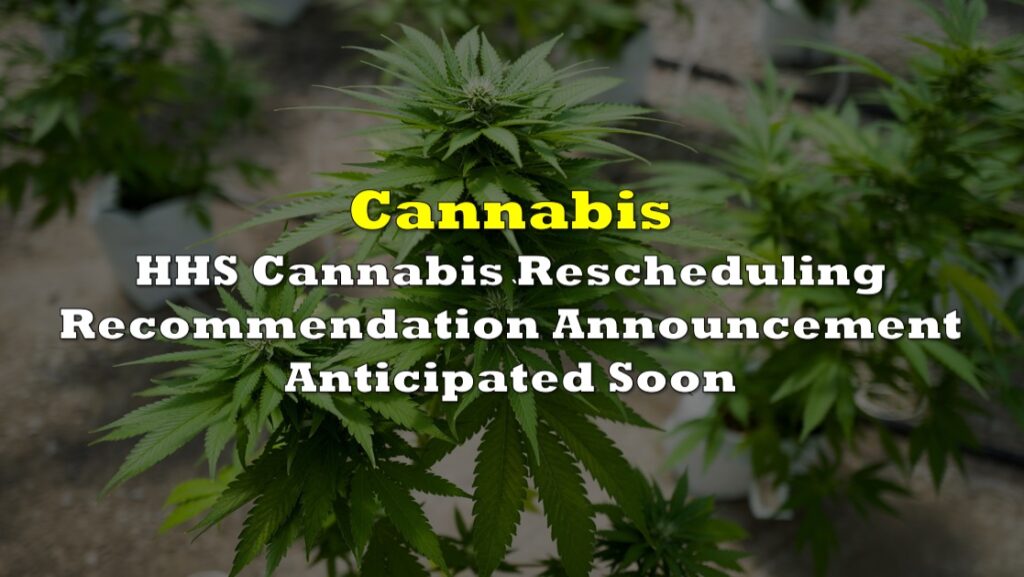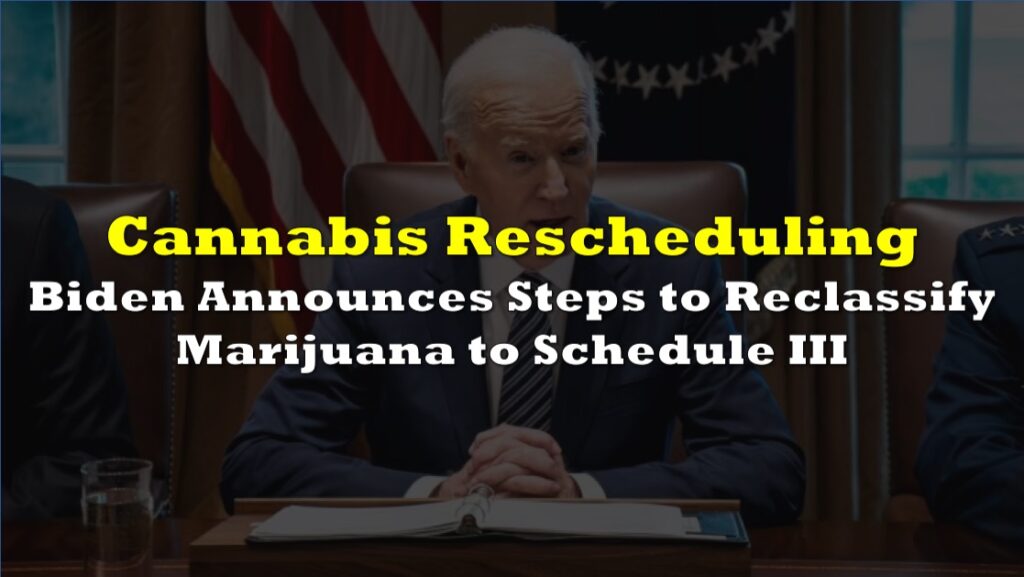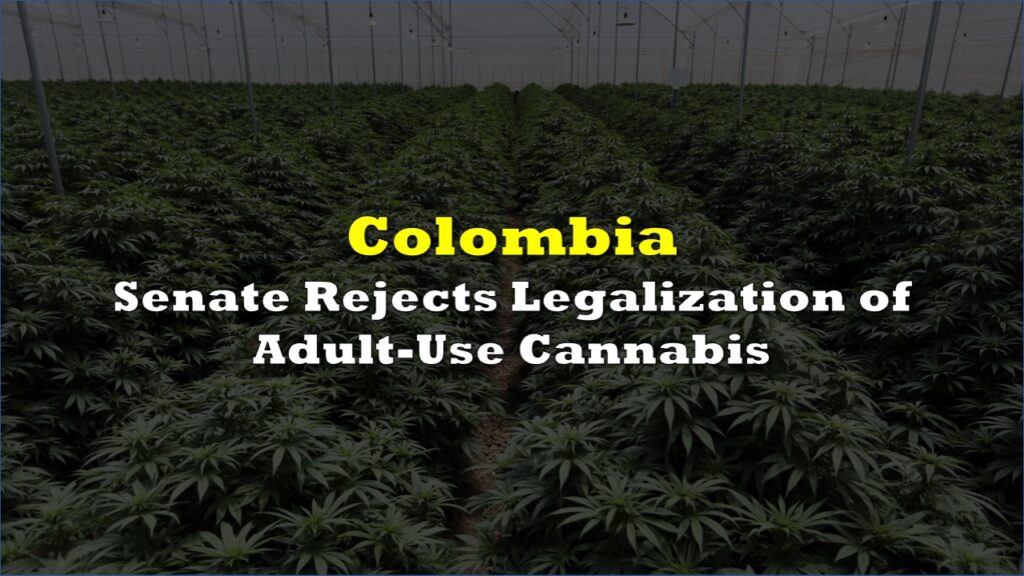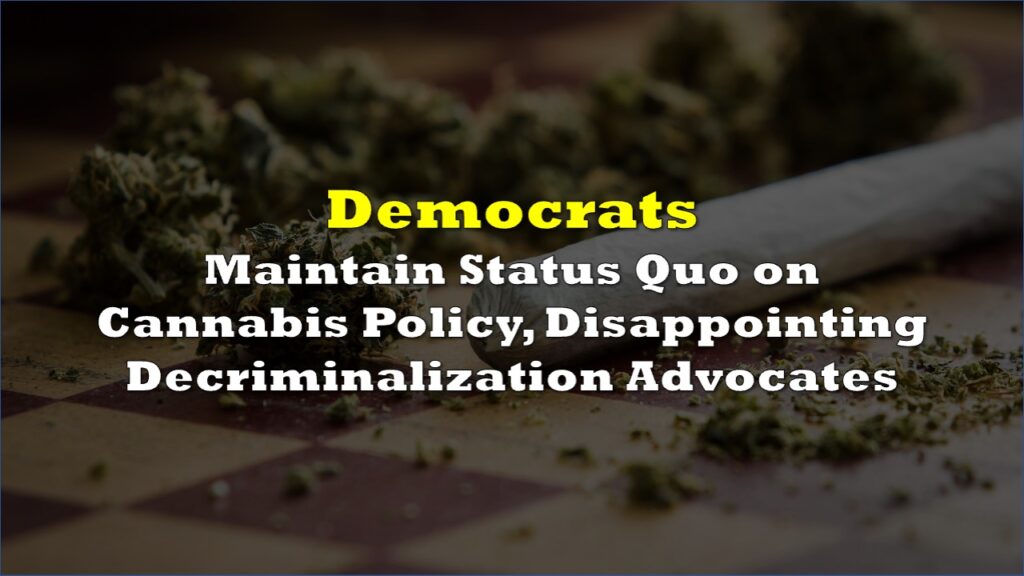US Senators Chuck Schumer, Ron Wyden, and Cory Booker are reportedly set to reintroduce the Cannabis Administration and Opportunity Act, aimed at federally decriminalizing and regulating cannabis, according to Politico correspondent Natalie Fertig.
The bill, first introduced in July 2021, aimed to remove cannabis from the list of controlled substances, allow states to implement their own cannabis policies, and establish regulations for cannabis-related businesses. The bill also included provisions to address social equity issues related to cannabis legalization, such as expunging prior cannabis convictions and reinvesting in communities disproportionately affected by cannabis prohibition.
NEW: @SenSchumer, @RonWyden and @SenBooker will reintroduce the Cannabis Administration and Opportunity Act tomorrow. It's a bill that would federally decriminalize and regulate cannabis. Presser at 12:30 – more details coming soon.
— Natalie Fertig (@natsfert) April 30, 2024
The development comes after the U.S. Drug Enforcement Administration (DEA) is reported to make a significant change in American drug policy, moving to reclassify marijuana as a less dangerous drug. This landmark decision, reported by The Associated Press, could have far-reaching effects across the country.
The proposal, still awaiting review by the White House Office of Management and Budget (OMB), acknowledges the medical applications of cannabis and recognizes its lower potential for abuse compared to some other controlled substances. However, it stops short of legalizing marijuana for recreational use.
According to sources familiar with the matter who spoke on condition of anonymity, the DEA’s move represents the final major regulatory hurdle before implementing what could be the agency’s most significant policy shift in over five decades.
Pending OMB approval, the DEA will initiate a public comment period regarding the plan to reclassify marijuana from its current Schedule I status, alongside heroin and LSD, to Schedule III, alongside substances like ketamine and certain anabolic steroids. This recommendation stems from the federal Health and Human Services Department. Subsequently, after public comments and administrative review, the final rule will be published.
“This proposal to reclassify marijuana from Schedule I to Schedule III has been circulated by the Attorney General today,” said Xochitl Hinojosa, the Justice Department’s director of public affairs, in a statement. The DEA falls under the jurisdiction of the Department of Justice. “Once published in the Federal Register, it will initiate a formal rulemaking process as mandated by Congress in the Controlled Substances Act.”
Attorney General Merrick Garland’s endorsement underscores the significance of this move and suggests its importance within the Biden administration’s agenda.
The initiative follows President Joe Biden’s call in October 2022 for a review of federal marijuana laws and subsequent efforts to pardon thousands of individuals federally convicted of minor marijuana possession. Biden has urged governors and local leaders to pursue similar actions to expunge marijuana-related convictions.
The announcement, made during an election year, could serve to bolster support for Biden, particularly among younger voters.
Biden and a growing number of lawmakers from both parties have advocated for the DEA’s decision, reflecting shifting societal attitudes toward marijuana. A Gallup poll conducted last fall revealed that 70% of adults support legalization, marking a significant increase from approximately 30% in 2000.
Despite the reclassification, marijuana will remain a controlled substance subject to regulations. Those trafficking in Schedule III substances without authorization could still face federal prosecution.
Critics argue against the DEA’s decision, citing concerns that marijuana serves as a gateway drug. However, proponents liken its regulation to that of alcohol.
While this move represents progress, Senate Majority Leader Chuck Schumer of New York emphasized the need for further legislative action to deschedule cannabis entirely.
Federal drug policy has lagged behind state initiatives, with 38 states legalizing medical marijuana and 24 permitting recreational use. This has spurred rapid growth in the marijuana industry, valued at nearly $30 billion.
Easing federal restrictions could alleviate the tax burden on businesses and facilitate research on marijuana, currently hindered by its Schedule I classification.
However, challenges remain, including the need for dispensaries to register with the DEA and the United States’ international treaty obligations, which currently require cannabis criminalization.
Information for this briefing was found via Associated Press and the sources mentioned. The author has no securities or affiliations related to this organization. Not a recommendation to buy or sell. Always do additional research and consult a professional before purchasing a security. The author holds no licenses.









